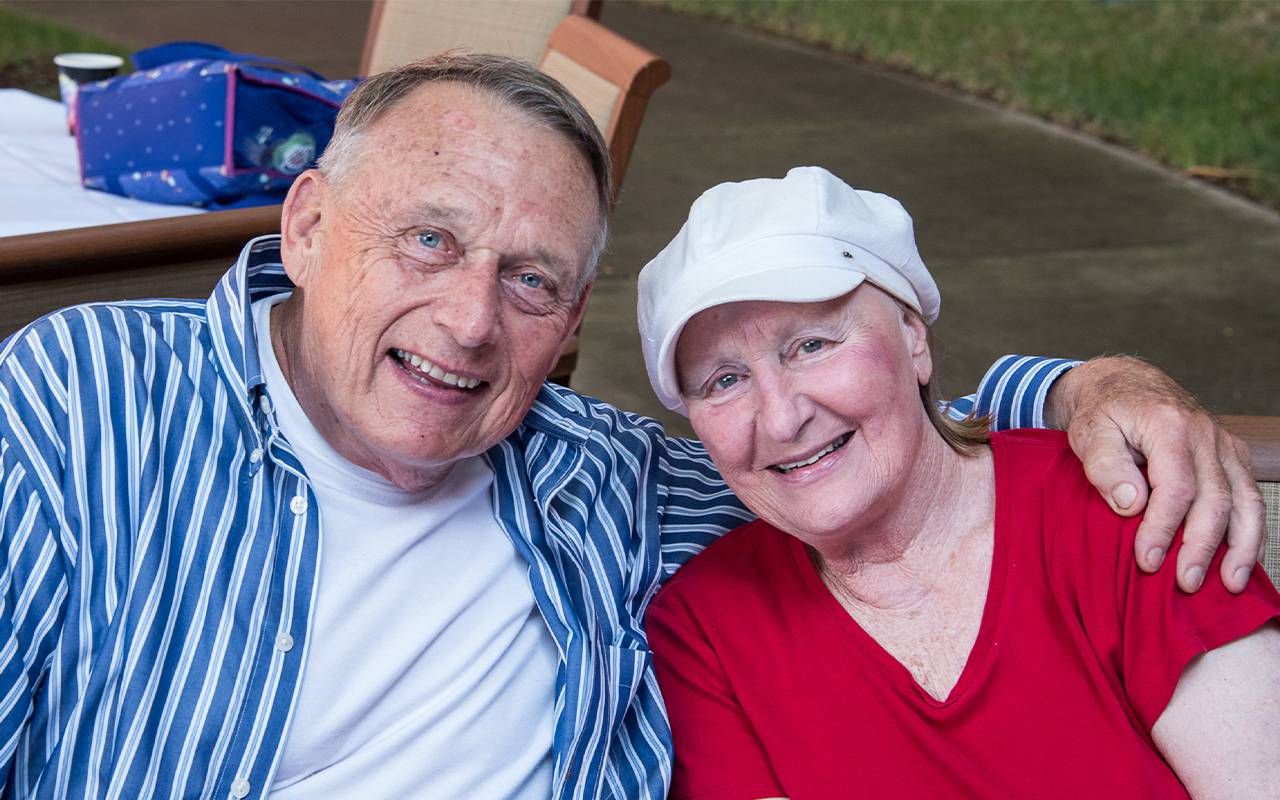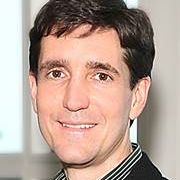What You Should Know as an Alzheimer's Caregiver
After facing the challenges of caring for his wife, former Wisconsin Governor Marty Schreiber shares his personal journey along with practical tips to help Alzheimer's caregivers better cope and survive
Throughout his life, Marty Schreiber welcomed the opportunities and challenges of taking on new roles. Whether campaigning for public office, becoming governor of Wisconsin or settling into private life, he never regretted the twists and turns during life's journey and the wisdom he gained from each experience.

After 45 years of marriage to his high school sweetheart, Elaine, he was utterly unprepared for the most challenging role of his life – being a primary caregiver.
"I learned first-hand what it takes to be a loyal and selfless caregiver."
After two years of steady decline in remembering people's names, getting lost when driving to once familiar places and losing interest in long-held hobbies like reading, his wife was diagnosed with Alzheimer's disease in 2007 at age 67.
Gradually, Elaine became increasingly dependent on her husband to drive her places, shop for food and prepare meals, clean the house and keep up with family and friends. After eight years of caring for her at their home, Schreiber decided that Elaine needed to live in a memory care facility outside of Milwaukee and receive professional care. She lived there peacefully until she passed away in 2022.
Even with the disease, Elaine remained a gentle, warm and loving companion. "She was not the same Elaine I married in 1961 and raised four children with," recalls Schreiber. "A second Elaine replaced the first one, and that's why I wrote a book and gave it the title, 'My Two Elaines,' which chronicles our lives together coping with Alzheimer's disease."
Schreiber said he never realized until it was over how critically important he was to her as she faced a daunting future. "Like all caregivers, I certainly have regrets. I wish I could go back and change some of my behaviors, attitudes and take back some things I said in frustration and ignorance. I wish I had reached out for help sooner and learned better coping methods than having a drink or two each night."
Most of all, he says, he wants to help other caregivers who face similar challenges avoid some of the mistakes he made. In his own words, Schreiber shares the following tips to help others be the best caregiver possible so they can survive and maintain their sense of identity after their tireless work is done.
Learn and ask questions to understand Alzheimer's disease
Talk to doctors, nurses, social workers and other Alzheimer's caregivers to learn about Alzheimer's disease. This will help you better prepare for what's ahead, how to get help, and most importantly, how to cope.
I waited four years after Elaine was diagnosed to contact the Alzheimer's Association. I often wonder how things would have been different if I had reached out sooner.
Call their helpline (800-272-3900) or visit their website to access their resources and to connect with other caregivers.
Maintain a sense of humor to survive the stresses of being an Alzheimer's caregiver
Elaine called me a "bullshitter" once after I described how we met in high school in 1953. My first Elaine would never have used that language, so I laughed, and she laughed, and we shared an unexpected moment of joy.
Elaine misplaced the car keys, and so I turned over the house, searching everywhere for them. Finally, after two hours of frustration, I found them sitting in the dishwasher. I discovered the humor at that moment and later joked with our kids, saying, "You'll never guess where Mom put the car keys."
Don't hold onto the past; accept your loved one for who they are becoming
Your loved one will inevitably transform into another person. You will witness someone who talks differently, thinks differently and can't do the same activities you shared. It's essential to embrace this "new" person.
Your loved one will inevitably transform into another person.
It's not about saying goodbye to their old personality, but to survive this journey, you need to accept them for who they are becoming. Elaine and I loved to bike ride. As the disease advanced, she could no longer ride a bike. I took her to a shop for a three-wheel motorcycle, but she couldn't relate to the handlebars. I was still living in the past and not accepting that she could no longer do once-familiar activities.
Create a bucket list of things you want to do with your loved one before it's too late
After the diagnosis, there will be a window of time – and it will vary in length from person to person – where you could still have adventures together. Maybe it's a road trip to visit family, a cruise to an exotic destination or a major sports event.
Whatever it is, take advantage of some time when you can still have fun and enjoy good times. If you travel, remember that being in new places could cause your loved one to experience confusion and disorientation. When that happens, that may signal that traveling is no longer possible.
Be bold and ask for help
Many Alzheimer's caregivers think we can do it all and do not need help. At first, I was guilty of that and stubbornly didn't ask for help. That was one of my biggest mistakes. I learned the hard way and eventually asked my kids for more help.
When you ignore yourself, your health will suffer, jeopardizing you and your loved ones because they need you.
When my daughters and their families, who lived out of town, would come to visit, instead of entertaining them, I would ask them to watch their mom while I took a much-needed break.
I also recruited friends and set up an online schedule where they could volunteer for help, like sitting with Elaine for a few hours or bringing over a meal. Several online tools – CareCalendar, CaringBridge and Caring Village – help make scheduling that much easier.
Make it a priority to stay healthy for yourself and your loved ones
To be an effective caregiver, you need to take care of yourself. You may hear this a lot and wonder how can I care for myself when I'm spending most of my time caring for my loved one.
The answer is that you get help from other family members, friends, neighbors and health aides. When Elaine was first diagnosed, I faithfully still went to the gym.
But as she became more forgetful and confused, I stopped working out and gained 20 pounds in a year. When you ignore yourself, your health will suffer, jeopardizing you and your loved ones because they need you.
Find an adult daycare center for your loved one sooner
About a year after Elaine was diagnosed, I looked around for activity options in the community. A swimming program occupied her time for a few months, and eventually, I found an adult daycare program that offered games, memory exercises and occasional field trips.
She initially resisted, but I positioned the program as an opportunity for "continuing education." She took "going to class" very seriously and started taking notes in her journal. The program gave me some breathing room to exercise, do chores and work at home, and provided a much-needed mental health break.
Moving your loved one into a professional care facility is okay
A counselor with the Alzheimer's Association reminded me that the disease was causing Elaine to have more care needs than I could provide – even with help from health aides. My kids and friends kept asking why Mom was still living at home.
I eventually realized that "Marty's one-man nursing home" was not meeting her needs anymore. I discovered it was time for her to move to a memory care unit. I knew she was in good hands, and it allowed me to finally get a whole night's sleep, start exercising again and be more mentally awake to continue to care for Elaine.
Adjusting to living by yourself will not be easy. It was a hard adjustment, but I knew it allowed me to become a more engaged husband, father, grandfather and friend.


